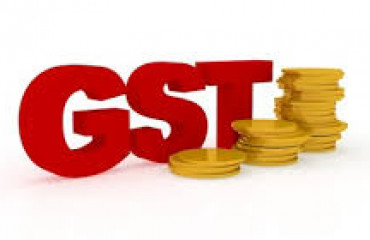
The Ministry of Finance celebrated the 6th Goods and Services Tax (GST) Day at New Delhi, commemorating six years since the implementation of GST in India. The event was presided over by Union Finance Minister Smt. Nirmala Sitharaman, who emphasized the importance of GST in driving economic progress, promoting cooperative federalism, and acknowledging the vital role of taxpayers. The celebration also recognized the contributions of officers and compliant taxpayers to the success of GST.

The Ministry of Finance celebrated the 6th Goods and Services Tax (GST) Day at New Delhi, commemorating six years since the implementation of GST in India. The event was presided over by Union Finance Minister Smt. Nirmala Sitharaman, who emphasized the importance of GST in driving economic progress, promoting cooperative federalism, and acknowledging the vital role of taxpayers. The celebration also recognized the contributions of officers and compliant taxpayers to the success of GST.
Stitching Diversity into Economic Progress:
Finance Minister Smt. Nirmala Sitharaman highlighted GST as the embroidery that stitches the diversity of Indian markets into the fabric of economic progress. She emphasized how the GST Council meetings have become shining examples of cooperative federalism, where the Center and states collaborate to address complex issues and make GST more responsive and nuanced. The Finance Minister also stressed the significance of the feedback loop between taxpayers and the department for the continued success of GST.
Reducing Tax Burden and Promoting Consumer Benefits:
The Finance Minister recalled the fragmented state of the Indirect Tax System in India before GST's implementation, where every state had distinct tax laws and procedures. GST has significantly reduced the tax burden on consumers, particularly on common use items such as tea, milk powder, hair oil, toothpaste, and soap. The Finance Minister acknowledged the sensitivity of the GST Council in reducing rates even after the introduction of GST, ensuring lower tax incidence on common household items, kitchenware, furniture, electrical equipment, and certain food items.
Empowering MSMEs and Embracing Technology:
Smt. Sitharaman highlighted the benefits of GST for Micro, Small, and Medium Enterprises (MSMEs) by easing their compliance burden through measures like the composition scheme and quarterly return options. She emphasized that technology has been the centerpiece of the GST-Facilitation Revolution, making GST technology-enabled and technology-driven. The Finance Minister applauded the efforts of CBIC officers and acknowledged the challenges they faced during the implementation journey, including technological issues and resolving taxpayer queries amidst the COVID-19 pandemic.
Collaboration and Consultation for Responsive Policy:
The Finance Minister acknowledged the crucial role played by trade associations in the formulation and implementation of GST. These associations actively brought forward their issues and facilitated knowledge dissemination through seminars and workshops. The consultative and collaborative approach between the government and trade associations has been instrumental in making GST policy-making responsive and responsible.
Honoring Officers and Taxpayers:
As part of the celebrations, 24 officers were felicitated by the Finance Minister for their exceptional service on GST Day. These officers demonstrated continued devotion and commitment to their duties. Additionally, the Central Board of Indirect Taxes and Customs (CBIC) honored 50,000 compliant taxpayers from various industry sectors for their contributions to nation-building. These taxpayers exhibited prompt filing of GST returns and timely payment of their GST liabilities, reflecting improved compliance behavior.
Conclusion:
The 6th GST Day celebration marked an important milestone in India's economic progress. The Finance Minister emphasized the role of GST in promoting cooperative federalism, reducing
